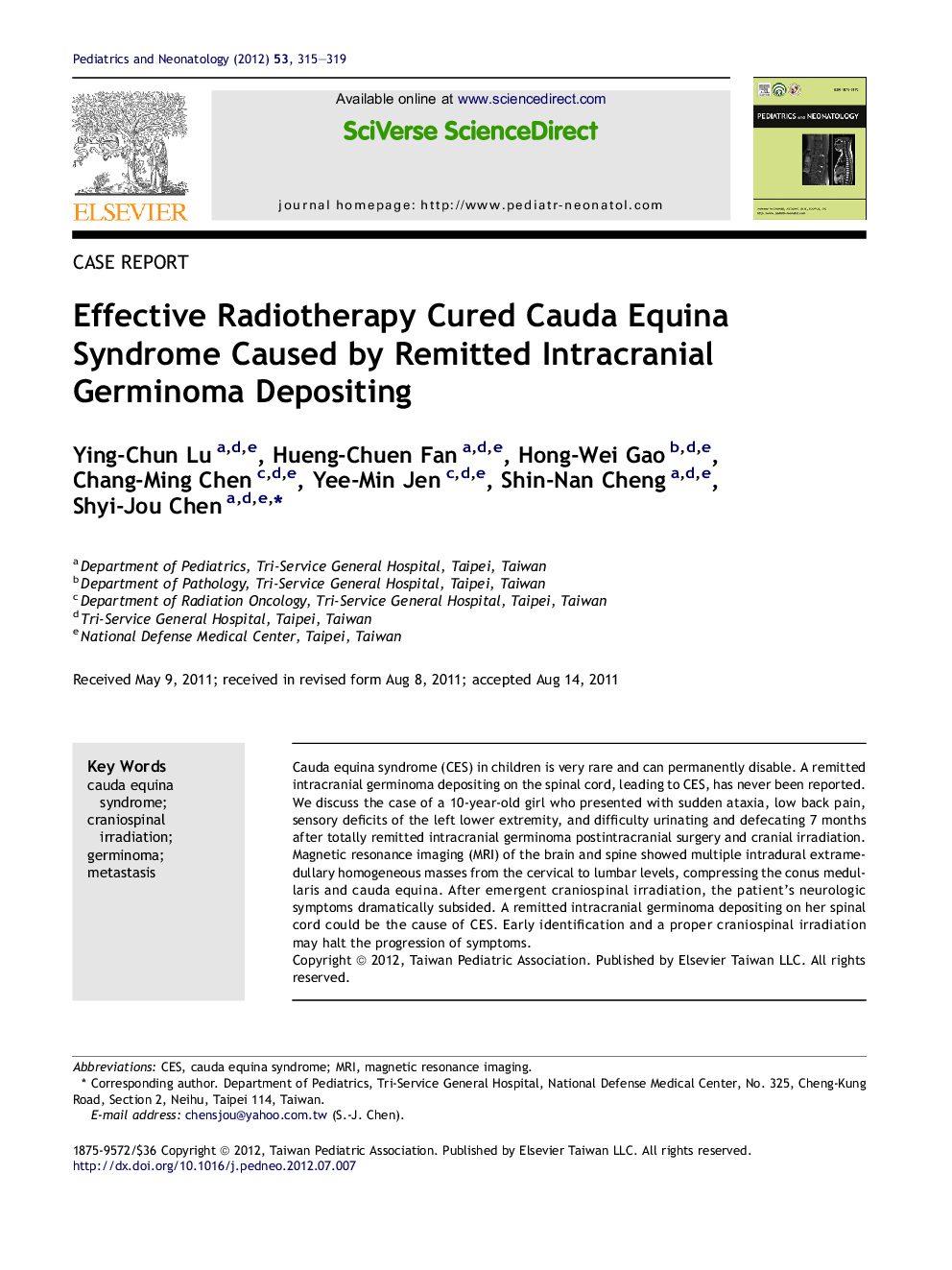| Article ID | Journal | Published Year | Pages | File Type |
|---|---|---|---|---|
| 4175322 | Pediatrics & Neonatology | 2012 | 5 Pages |
Cauda equina syndrome (CES) in children is very rare and can permanently disable. A remitted intracranial germinoma depositing on the spinal cord, leading to CES, has never been reported. We discuss the case of a 10-year-old girl who presented with sudden ataxia, low back pain, sensory deficits of the left lower extremity, and difficulty urinating and defecating 7 months after totally remitted intracranial germinoma postintracranial surgery and cranial irradiation. Magnetic resonance imaging (MRI) of the brain and spine showed multiple intradural extramedullary homogeneous masses from the cervical to lumbar levels, compressing the conus medullaris and cauda equina. After emergent craniospinal irradiation, the patient's neurologic symptoms dramatically subsided. A remitted intracranial germinoma depositing on her spinal cord could be the cause of CES. Early identification and a proper craniospinal irradiation may halt the progression of symptoms.
